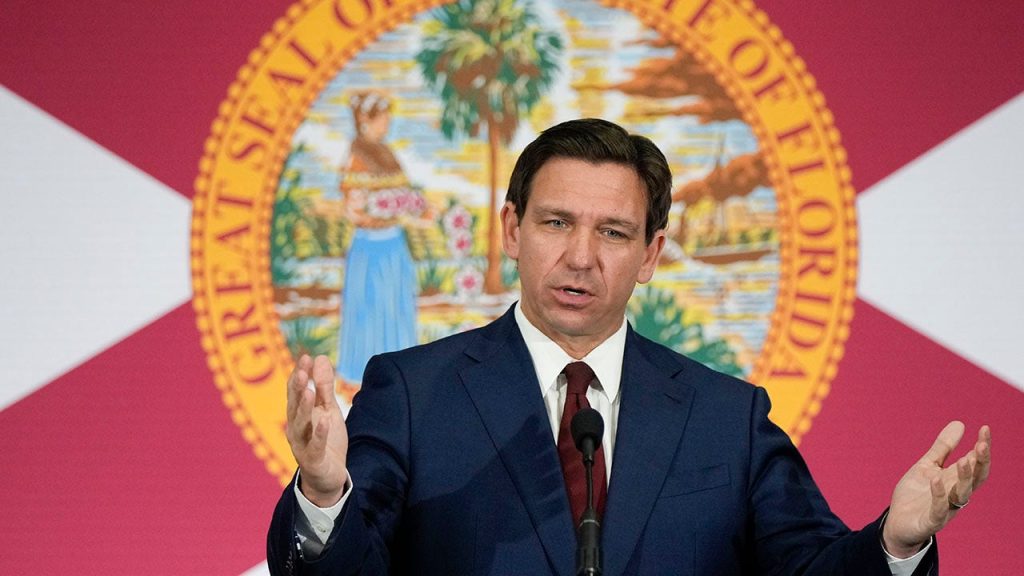In a significant fiscal move, Florida Governor Ron DeSantis, representing the Republican Party, announced on Friday that the state will return over $878 million to the federal government. This decision, aimed at reflecting Florida’s stance against what the governor describes as “ideological strings” tied to federal funds, follows a meeting with billionaire entrepreneur Elon Musk and his team at the newly established Department of Government Efficiency (DOGE). The state has expressed its ongoing commitment to identifying and returning any excess federal funds it may possess.
| Article Subheadings |
|---|
| 1) Details of the Fund Return |
| 2) The Role of Elon Musk and DOGE |
| 3) Community and Political Reactions |
| 4) Future Implications for State Funding |
| 5) Broader Context of Federal-State Relations |
Details of the Fund Return
The announcement made by Governor DeSantis indicates that Florida will return a total of $878,112,000 to the U.S. Treasury Department. The governor’s administration has been attempting to return these funds for several years during the ongoing Biden administration, citing a desire to extricate the state from what they consider financially burdensome or politically motivated stipulations attached to federal aid. In a statement released on social media, DeSantis remarked, “For years, Florida has been trying to return federal funds… but they couldn’t even figure out how to accept it.” This reflects a palpable frustration from the governor aimed at federal restrictions surrounding the funds.
The Role of Elon Musk and DOGE
The recent decision was catalyzed following a meeting between Governor DeSantis, Elon Musk, and the DOGE team. DOGE, which stands for the Department of Government Efficiency, was created to streamline state operations and eliminate waste. On social media, DeSantis mentioned that this crucial meeting greatly facilitated the return of the taxpayer dollars in one day. The governor went further to encourage other states to adopt similar measures: “Other states should follow Florida in supporting DOGE’s efforts!” This collaboration has highlighted the intersection of politics, governance, and private sector influence in addressing governmental inefficiencies.
Community and Political Reactions
The reactions to DeSantis’ announcement have been mixed among community members and political analysts. Supporters of the governor hail the return of federal funds as a bold step towards fiscal responsibility, arguing it sets a precedent for other states to follow. However, critics raise concerns about the implications of returning the funds and question the motivations behind the DOGE initiative. Some observers argue that the cancellation of surplus federal funds may affect future funding availability for essential programs, including education and infrastructure. Furthermore, Elon Musk‘s role in this decision has also stirred debates, with some advocating that his involvement illustrates a troubling trend of private influence within state affairs.
Future Implications for State Funding
The decision to send back federal funds may also imply significant future implications for Florida’s state funding structure. Officials from the governor’s office have indicated they will search for additional surplus federal funds, promising to cash in on what they see as wasted taxpayer dollars. DeSantis has been vocal about wanting to set an example for fiscal conservatism, stating that Florida will continue its pursuit of efficiency, especially through the utilization of tools such as artificial intelligence to uncover hidden waste within government operations. This endeavor seems aimed at garnering support from taxpayers who have increasingly grown weary of government spending and inefficiencies.
Broader Context of Federal-State Relations
This move by Florida’s government is set against the backdrop of rising tensions between state and federal authorities. Since the onset of the Biden administration, many Republican-led states have voiced opposition to perceived federal overreach and regulatory constraints. DeSantis’ strong stance represents a broader trend among conservative states aiming for lowered dependency on federal funds, often tied to mandates that may not align with state priorities. This growing chasm points to an evolving landscape of federal-state relations, where fiscal autonomy continues to emerge as a central theme in governance and political discourse.
| No. | Key Points |
|---|---|
| 1 | Florida is returning $878 million in federal funds to the U.S. government. |
| 2 | Governor DeSantis attributes the move to the restrictive strings attached to federal funding. |
| 3 | The DOGE initiative, led in part by Elon Musk, aims to increase government efficiency. |
| 4 | Responses from the public are divided between support and concern regarding fiscal implications. |
| 5 | The decision is reflective of broader trends in federal-state relations amidst rising tensions. |
Summary
In conclusion, Florida’s return of $878 million in federal funds represents a broader ideological standoff between state governments led by Republican officials and the Biden administration. Governor Ron DeSantis has framed the funding return as a step towards fiscal conservatism and greater autonomy for the state. This initiative, alongside the efforts of the DOGE, has opened discussions around waste reduction and efficiency in government operations. As more states watch closely, Florida may indeed set a precedent that could reshape the dynamics of federal-state funding relationships in the future.
Frequently Asked Questions
Question: What is the Department of Government Efficiency (DOGE)?
The Department of Government Efficiency (DOGE) is an initiative launched by Florida’s government aimed at improving governmental operations, reducing waste, and enhancing fiscal responsibility.
Question: Why is Florida returning federal funds?
Florida is returning federal funds due to perceived ideological constraints and stipulations imposed by the Biden administration that the state finds burdensome.
Question: What role did Elon Musk play in this announcement?
Elon Musk participated in a key meeting with Governor DeSantis and his team at DOGE, which significantly influenced the decision to return the federal funds.


